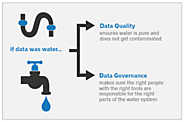-
About
- About Listly
- Community & Support
- Howto
- Chrome Extension
- Bookmarklet
- WordPress Plugin
- Listly Premium
- Privacy
- Terms
- DMCA Copyright
- © 2010-2025 Boomy Labs

 Bam Vincent
Bam Vincent
Listly by Bam Vincent
As we move further into the digital age, the amount of data being generated continues to increase exponentially. The rise of big data has brought with it a number of challenges, including issues related to data storage, processing, and security. In 2023 and beyond, it is clear that these challenges will only become more pressing as the amount of data being generated continues to grow at an unprecedented rate.
Source: https://indatalabs.com/blog/big-data-problems-and-solutions

One of the most significant issues related to big data is data privacy and security. As more organizations collect, store, and analyze vast amounts of data, the risk of data breaches and cyber attacks increases. In 2023 and beyond, organizations must prioritize data privacy and security by implementing robust security protocols and investing in state-of-the-art cybersecurity technologies.

Another significant challenge related to big data is maintaining data quality and governance. As the volume of data increases, so does the risk of errors and inconsistencies. Inaccurate data can lead to erroneous insights, affecting decision-making processes negatively. Organizations must ensure that they have robust data governance practices in place to manage data quality, including data cleaning and deduplication.

As organizations collect data from multiple sources, ensuring that data integration and interoperability can become a challenge. In 2023 and beyond, organizations must prioritize data integration by investing in technologies that enable data to be easily accessed, shared, and integrated across different systems and platforms.

Finally, with the vast amount of data that organizations collect, analyzing and visualizing data can be a significant challenge. In 2023 and beyond, organizations must invest in technologies that can automate data analysis and visualization, enabling them to make data-driven decisions quickly.

Big data has transformed the way organizations operate, creating new opportunities and challenges. In 2023 and beyond, organizations must prioritize data privacy and security, data quality and governance, data integration and interoperability, and data analysis and visualization. By investing in technologies that address these challenges, organizations can harness the power of big data and drive innovation and growth.
